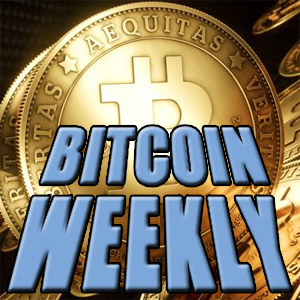 NEWS
NEWS
 NEWS
NEWS
 NEWS
NEWS
![]() It’s a week after BTC value exceeded $1,000 and we had Bitcoin Friday (taking advantage of the “retail holiday” Black Friday.) As a result of the value in excess of $1,000 popular market charting website Bitcoinity has switched to mBTC for display purposes. Kevin Rose, co-founder of Digg, had words to say about the bitcoin market. If you’re interested in finding a brick-and-mortar store to use your hard-earned bitcoins go to CoinMap and take a look.
It’s a week after BTC value exceeded $1,000 and we had Bitcoin Friday (taking advantage of the “retail holiday” Black Friday.) As a result of the value in excess of $1,000 popular market charting website Bitcoinity has switched to mBTC for display purposes. Kevin Rose, co-founder of Digg, had words to say about the bitcoin market. If you’re interested in finding a brick-and-mortar store to use your hard-earned bitcoins go to CoinMap and take a look.
All this, and why China appears to be a big part of the bitcoin market right now in this Bitcoin Weekly.
Bitcoinity switched to mBTC
The ever popular bitcoin value chart Bitcoinity has switched to using mBTC instead of BTC due to the valuation having hit $1,000 last week.
To warn of the switch, Bitcoinity has a giant banner stating DON’T PANIC and writes, “I recommend trying to switch. It’s much better. If you can’t stand it, go to preferences in the top right, and set bitcoin unit back to BTC.”
With BTC value hitting $1,000 suddenly made charts a little less distinguishable; but changing to mBTC or one one-thousandth of a bitcoin, suddenly allows charts to display in the range of $1 again. In many ways this also helps show how bitcoins can be extremely useful as microtransaction currency because it’s possible for them to be fractioned down into very small parts to keep up with the currencies own increased valuation.
Kevin Rose has something to say about bitcoin
The whole $1,000 market value of BTC keeps getting people talking and web development celebrities are no exception. Kevin Rose, famous for being the co-founder of Digg and ending up being a millionaire as a result, wrote “Bitcoin is falling again. Here’s why it doesn’t matter.” noticed that after peaking at $1,200, BTC value fell again to around $800—of course, now it’s once again hovering over the thousand mark again.
He splits the majority of the Bitcoin community up into two factions: the “quick money” investment money-seeking joiners and the true believer diehards who are philosophically invested (not monetarily.)
Every time BTC sees a massive rise in value there’s always a definite cycle of a bubble, a crash, and a lot of talk about selling at a peak and buying when it falls. So far, every time bitcoin value has risen hard and fallen, it’s still come out at a higher value. For the investment folks (both “quick money” and long term) this is an interesting factor for “buying in” but in the end it shows that the world is still sniffing out where it feels bitcoin’s value rests.
Take a look at CoinMap, the Google Maps of bitcoin
Last week was Bitcoin Friday—set on the “retail holiday” of Black Friday and used to evangelize bitcoin use to merchants and consumers—and this led to a tremendous up-swell of businesses that accept bitcoins for services and goods. One way to find participating merchants is to check BitPay’s merchant directory; but another (and a much more fun one) is to visualize it on a map.
That map is provided by CoinMap.org.
An article in Coindesk on November 28th cites the site as starting at around 552 at the start of November and rising to over 1,000 entries—today it has 1,455 citations of brick & mortar stores that accept BTC. Slowly but surely merchants are beginning to accept the virtual coin at their shop fronts from Subway to South Korea’s Paris Baguette bakery.
If there’s an establishment near you that accepts bitcoins, you can also add it to the CoinMap yourself—or, if you don’t know of any, you can check and see if there’s someone near you already added you can visit!
China and bitcoin continues to be a talking point and a rising tide
In a recent Forbes article, China finance analyst Paul Denlinger had his Quora answer curated discussing why Bejing companies are beginning to give much more visibility to bitcoin. Especially, he notes, now that China Telecom (a Chinese state-owned enterprise) is accepting payments in Bitcoin.
Here’s the shortlist of the reasons he sees for the increase in interest:
The current $1,000 valuation for BTC on the market—and the sudden surge from its previous value—has been long tied to a sudden interest by Chinese investors in the virtual coin. Many questions have been raised if the Chinese government would move to quash bitcoin or seek strict regulation (this is a country best known for its Great Firewall and draconian social controls.) However, so far the Chinese government seemed fairly ambivalent on bitcoin itself and adoption in the country continues apace.
THANK YOU